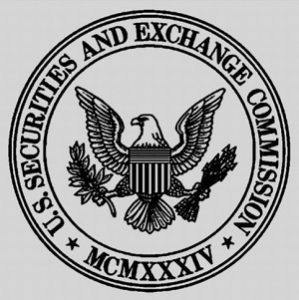 The current state of Initial Coin Offering (ICO) regulations is one of uncertainty and lack of clarity.
The current state of Initial Coin Offering (ICO) regulations is one of uncertainty and lack of clarity.
That was the message from Amy Davine Kim, the general counsel for one of the first digital currency trade groups, the Chamber of Digital Commerce.
“There’s a lot of regulatory uncertainty and lack of clarity of who has jurisdiction, what exactly are the rules, where does this fit in. Do we need new regs new laws? There’s a lot to figure out there. That’s going to take several years of work in Congress and with the appropriate regulators.” Kim said of ICO regulation.
Kim noted that regulations are necessary to combat those looking to commit fraud with virtual currency.
“There absolutely is nefarious activity. There are certainly people who are taking advantage of ICOs and really not going about this in an ethical way. That’s where we see high regulatory risk. “Kim noted.
What is the Chamber of Digital Commerce?
A chamber of commerce is form of membership business network of similar businesses, be it geographical or around business interests. In the US, US Chamber of Commerce is the most significant example and it lobbies and promotes American businesses.
The Chamber of Digital Commerce “promotes the acceptance and use of digital assets and blockchain-based technologies. Through education, advocacy and working closely with policymakers, regulatory agencies and industry, our goal is to develop an environment that fosters innovation, jobs and investment.”According to its website.
Its membership is open trying to make money in digital currency and blockchain.
Chamber of Digital Commerce and ICOs
An ICO is the launch of a new crypto-currency. It allows investors, speculators, and traders to be the first to own tokens in the new currency.
As Kim noted in the podcast, the Chamber of Digital Commerce “is actively writing best practices, so if you’re going to issue a token what do we expect to see from you. If you want to participate in a token sale- so for the most technology savvy grandma in the United States who may be participating in a token sale- if she wants to participate in this ecosystem we want to make sure she has some resources that helps her participate in a responsible. We’re doing this because one it’s our responsibility and because it’s the right thing to do. All businesses have a set of best practices.”
“A rules of the road, would be helpful,” Busch noted.
Regulations and ICOs.
The website Investopedia noted that ICOs are“An unregulated means by which funds are raised for a new cryptocurrency venture. An Initial Coin Offering (ICO) is used by startups to bypass the rigorous and regulated capital-raising process required by venture capitalists or banks.”
But indeed, the SEC has taken the lead in regulating, at least the fraud in ICOs.
A recent story in ZD Net noted, “The US Securities and Exchange Commission (SEC) has issued “dozens” of subpoenas and information requests from companies seeking to jump on the cryptocurrency craze through Initial Coin Offerings (ICOs).
“As reported by the Wall Street Journal, people familiar with the matter say that the watchdog has sent these requests to technology companies and advisors involved in new cryptocurrency schemes
“ICOs have become a popular investment of late. In comparison to more traditional avenues for investment such as stocks and shares, ICOs provide investors with “tokens” or company-branded cryptocurrencies in exchange for traditional virtual assets, including Bitcoin (BTC) and Ethereum (ETH).”

In January, the SEC halted an upcoming ICO in the digital currency AriseCoin with the SEC noting, “AriseBank and its co-founders Jared Rice Sr. and Stanley Ford allegedly offered and sold unregistered investments in their purported “AriseCoin” cryptocurrency by depicting AriseBank as a first-of-its-kind decentralized bank offering a variety of consumer-facing banking products and services using more than 700 different virtual currencies. AriseBank’s sales pitch claimed that it developed an algorithmic trading application that automatically trades in various cryptocurrencies.
“The SEC alleges that AriseBank falsely stated that it purchased an FDIC-insured bank which enabled it to offer customers FDIC-insured accounts and that it also offered customers the ability to obtain an AriseBank-branded VISA card to spend any of the 700-plus cryptocurrencies. AriseBank also allegedly omitted to disclose the criminal background of key executives.”
ICO’s fall into a netherworld of US regulation as Kim noted, because virtual currencies have been deemed as commodities by the CFTC, and thereby generally under its purview but the SEC has deemed many ICOs as a security, and under its purview.
In December 2017, SEC Chairman issued this statement: “I believe that initial coin offerings – whether they represent offerings of securities or not – can be effective ways for entrepreneurs and others to raise funding, including for innovative projects. However, any such activity that involves an offering of securities must be accompanied by the important disclosures, processes and other investor protections that our securities laws require. A change in the structure of a securities offering does not change the fundamental point that when a security is being offered, our securities laws must be followed.[4] Said another way, replacing a traditional corporate interest recorded in a central ledger with an enterprise interest recorded through a blockchain entry on a distributed ledger may change the form of the transaction, but it does not change the substance.”
As such, as Kim noted, the process of clarifying regulations on ICOs will be long and cumbersome and the Chamber of Digital Commerce hopes to play an active role in shaping the new regulatory regime.








